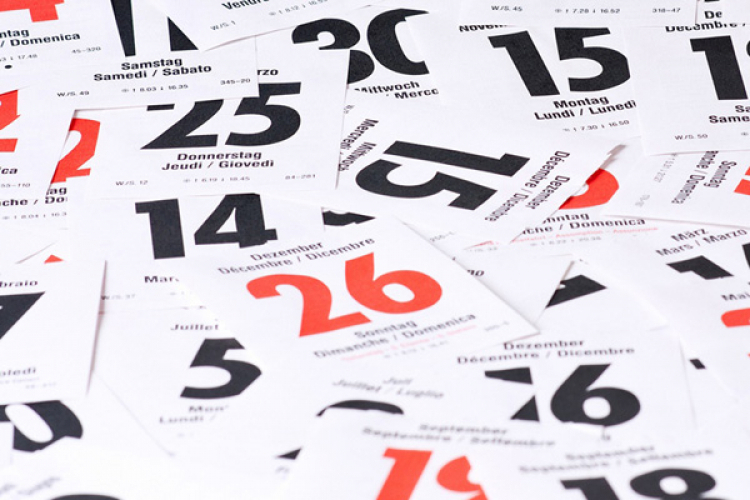
ECO-BUS WEEKLY DIGEST 8- June 14. Most important Economy & Business news by IPN
● WEDNESDAY, June 10
Igor Dodon: I will block attempt to allow foreigners to buy land
President Igor Dodon said he will not support the liberalization of the land market so that the foreigners coming to the Republic of Moldova could buy farmland. He developed the issue in the program “Moldova Live” on the public TV channel Moldova 1. “The people and the land are what we have dearest in the Republic of Moldova. We should not allow and will not allow foreigners to buy land, at least until I hold office of President. I will block the attempt to allow foreign citizens to purchase land,” stated the official. He noted that only the Moldovan citizens and resident companies can buy land. “If someone from abroad wants to come and invest here, they should come and found an enterprise and invest money in this enterprise, while this enterprise can purchase land to develop agriculture,” he stated.
Medical masks and gloves cannot be exported until end-June
The Government extended the ban on the export of medical masks, disposable gloves and disinfectants until the end of June by a decision taken on June 10. According to Deputy Prime Minister Sergei Pușcuța, Minister of Finance, the ban was extended until the expiry of the public health emergency given the rise in the number of confirmed infections with the novel coronavirus in Moldova. The decision will be reviewed depending on the epidemiological situation.
Government approves bill on optional pension funds
The bill that defines the legal framework for the constitution and functioning of optional pension funds in Moldova was approved by the Government. The document specifies the requirements for the organization and creation of an internal market for the accumulation and offering of optional pensions based on individual capitalized savings in conditions of safety and equal treatment for all participants. The National Commission for Financial Markets, which drafted the bill, said the optional pension system does not limit the person’s participation depending on age or the size of contribution and adherence to an optional pension system is an individual option. The system will be formed based on voluntary contributions made by salary earners or employers. Each participant will decide the pension fund to which to contribute and the size of contribution by concluding an individual fund joining document. The bill envisions a new element that is designed to strengthen the relations between the employer and employee materialized through an occupational pension plan. The optional pension funds center mainly on the individual retail component, while the occupational pension funds are based on the corporate component, being constituted on the initiative of the employer that pays contributions for the employees.
● THURSDAY, June 11
Economists say what prevents Moldova from efficiently fighting pandemic
During the pandemic crisis, the political factor and the vulnerability of ministries became an evident obstacle to working out important strategies based on a constructive dialogue between the Government and businesses, executive director of the European Business Association Mariana Rufa said in public debate “Crisis in Moldova as an indicator of missed opportunities and an occasion for changes”. ”Currently, many aspects in the Republic of Moldova are politicized. The state institutions are at the beck and call of the ruling party and what is discussed at party meetings often becomes an axiom for ministries. Consequently, if the businesses come with a proposal to the Government without enjoying political support, this proposal will not have chances of being accepted,” said the economist. She gave as example the amendments proposed to the Labor Code by the European Business Association of Moldova for overcoming the pandemic. “We suggest liberalizing the labor market. Yes, this is an unpopular measure that offers more rights to the employer, but it can significantly cut unemployment. Nevertheless, we haven’t yet found understanding on the part of the authorities in this regard,” stated Mariana Rufa.
Premier Chicu says all economic activities will be resumed by June 30
All the economic activities will be resumed by June 30, Prime Minister Ion Chicu has said. In a posting on Facebook, he noted that the authorities had to relax a number of economic activities after May 15. “If particular irresponsible politicians hadn’t blocked about 4.2 billion lei of the Russian loan without a plausible reason, for exclusively geopolitical reasons, we would have identified possibilities for maintaining the quarantine for a longer period,” wrote the official. According to Premier Chicu, if the economic activities are not gradually resumed, the country risks facing a financial and budgetary collapse. If the people remain without salaries and pensions, the effects will be cumulative and much more serious, including on the people’s health.
IDEP Moldova asks MPs to sign for approval of ECIPES program
The Institute for Development and Expertise of Projects (IDEP) Moldova requests the MPs to sign a letter and to transmit it to the Board of the European Commission for the approval of the ECIPES program that is supported by over 25 MEPs, for the benefit of 17% of the country’s population, 50% of the mayors and 2,000 young people. In a news conference, ECIPES program author Iurie Calestru, of the IDEP Moldova, said that together with the co-author of the program Gabriel Mărgineanu, they had discussions with over 60 MEPs and later had meetings with the European Commission. On June 10, they were assured of support for this program by nine more MEPs from six countries, who signed a letter addressed to the Board of the European Commission, by which they ask for the working group’s approval for the development of the program that is to be launched on January 1, 2021. It will be implemented during two years with the total allocated sum of €40 million. According to Iurie Calestru, owing to this program the Moldovan citizens could apply online to have domestic electrical appliances renewed through a platform, with the identity card only. Instead, they will receive a one-off grant of €100 per person. “The second large category of beneficiates includes the mayor’s offices that are twinned with EU municipalities. They could implement a local development project with a maximum of €10,000 in EU funding. The young people between the ages of 18-35 seeking to launch a business are the third large category of beneficiaries. They will get by €5,000 for a venture in the services sector or €15,000 for a manufacturing venture,” he stated.
Why doesn’t COVID-19 recede? Who should do and what should be done? IPN debate
The public health situation in Moldova is worrisome as the number of people infected with the novel coronavirus rises constantly and the figure is much higher that the number of cases reported in the countries of the region. The stages of the crisis, where the authorities and the population acted incorrectly and the steps that should be taken immediately to prevent things from degenerating were discussed by experts invited to a public debate entitled “Why doesn’t COVID-19 recede? Who should do and what should be done?”. Igor Boțan, the standing expert of IPN’s project, said he sees four stage of the pandemic crisis in Moldova. The first stage started in January, when the Moldovan authorities turned their attention to the propagation of the virus. Later, the epidemiological situation was examined by the National Extraordinary Commission for Public Health, on February 2, 2020. In the period, the Moldovan authorities came into contact with the World Health Organization (WHO), with Chinese officials, with China’s Ambassador to Moldova, who informed the authorities about aspects of the pandemic. The second stage occurred in February, when the Commission successively issued a yellow alert, an orange alert and a red alert in the period between February 24 and March 13. The last alert was issued after six cases of COVID-19 were confirmed in Moldova and the WHO on March 11 declared a public health emergency of international concern. In the period, the National Extraordinary Commission for Public Health adopted a number of important decisions, such as the suspension of the education process and air traffic, interruption in activity of recreational facilities, temporary halt in commercial activities, etc. The third stage began formally on March 17, when Parliament declared a state of emergency in Moldova for a 60-day period. In the period, the National Extraordinary Commission for Public Health was substituted by the Commission for Exceptional Situations that adopted about 30 orders aimed at containing the COVID-19 pandemic. The fourth stage started when the state of emergency was lifted and the National Extraordinary Commission for Public Health resumed work, adopting 25 decisions in the process of preventing the spread of the virus. Currently, Moldova is at the fourth stage.
5G to be implemented in Moldova in two stages
The 5G technology is not present in Moldova, but the operators and authorities have relevant plans. This is technology with a great impact on economic growth and also a proof of technological progress. In the Republic of Moldova, this technology is to be implemented in two stages. The first stage covers the period between 2020 and 2022. The existing networks, especially the 4G ones, will be consolidated during it. At the second stage, in 2023-2025, the authorities will prepare and distribute the new spectrum resources that are to be used for 5G, secretary of state at the Ministry of Economy and Infrastructure Vitalie Tarlev. According to the official, to make the implementation of the 5G technology possible, the authorities should provide the operators with the policy framework and spectrum resources, while the operators will design a development plan, will analyze the market’s capacity to absorb these services and will then invest in the development of networks and offers for end-users.
Adrian Lupușor: Lifting of restrictions is not measure to support private sector
“We need not a short-term view or plan, but an ambitious anti-crisis plan for the medium and long terms supported by an active, ambitious macroeconomic policy and relaxed monetary policy,” executive director of the Independent Think Tank “Expert-Grup” Adrian Lupușor said in the public debate “Why doesn’t COVID-19 recede? Who should do and what should be done?”. The expert noted that besides a well-thought-out plan, the government should also urgently adopt a package of anti-crisis measures, but should not support the private sector at the cost of people’s health. From economic viewpoint, it is important for the authorities to discuss with representatives of the business community, in particular SMEs. “Emphasis should be laid on dialogue and consultancy with the SMEs. We see that discussions are mainly held with large companies, associations of large producers, but we should not forget that the SMEs represent 98% of the private sector and namely they are the most vulnerable ones in the current crisis. We must provide the entrepreneurs with advice, with informational support so as to help them restructure their businesses, starting from the basic things.”

